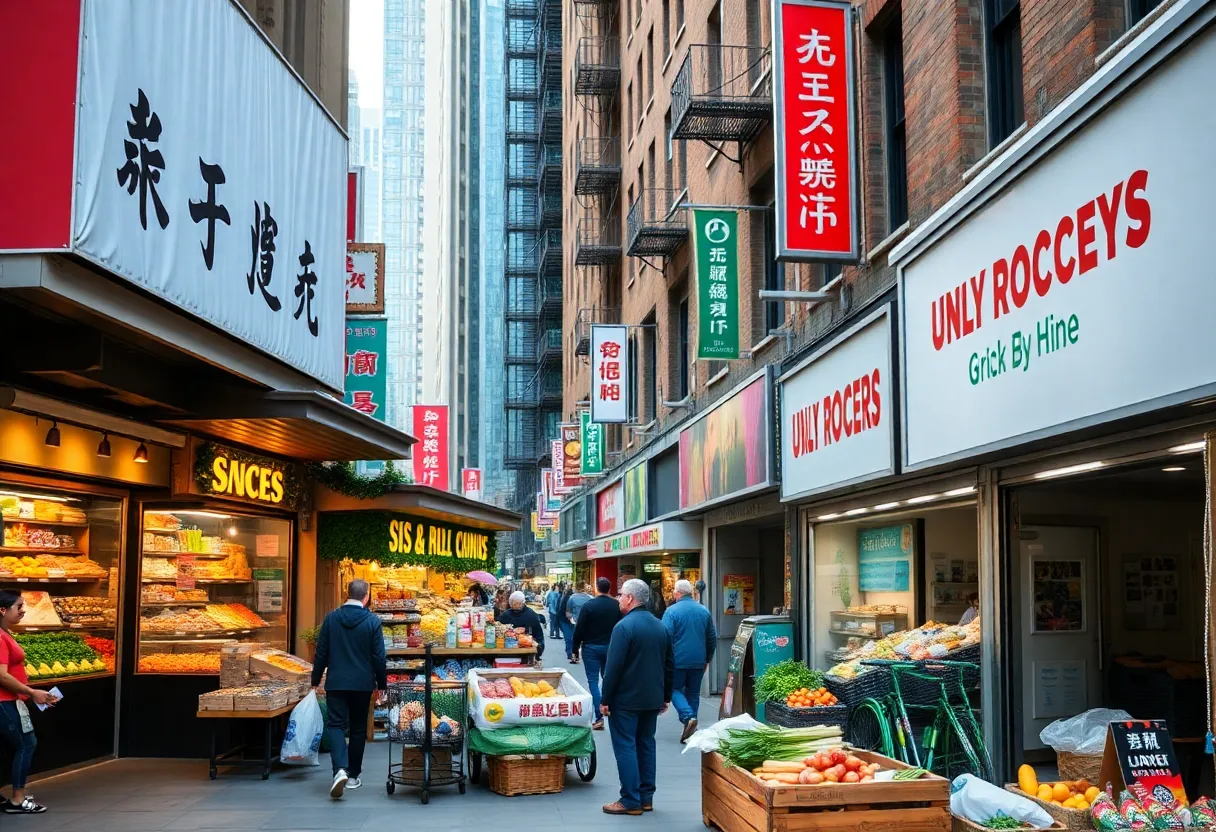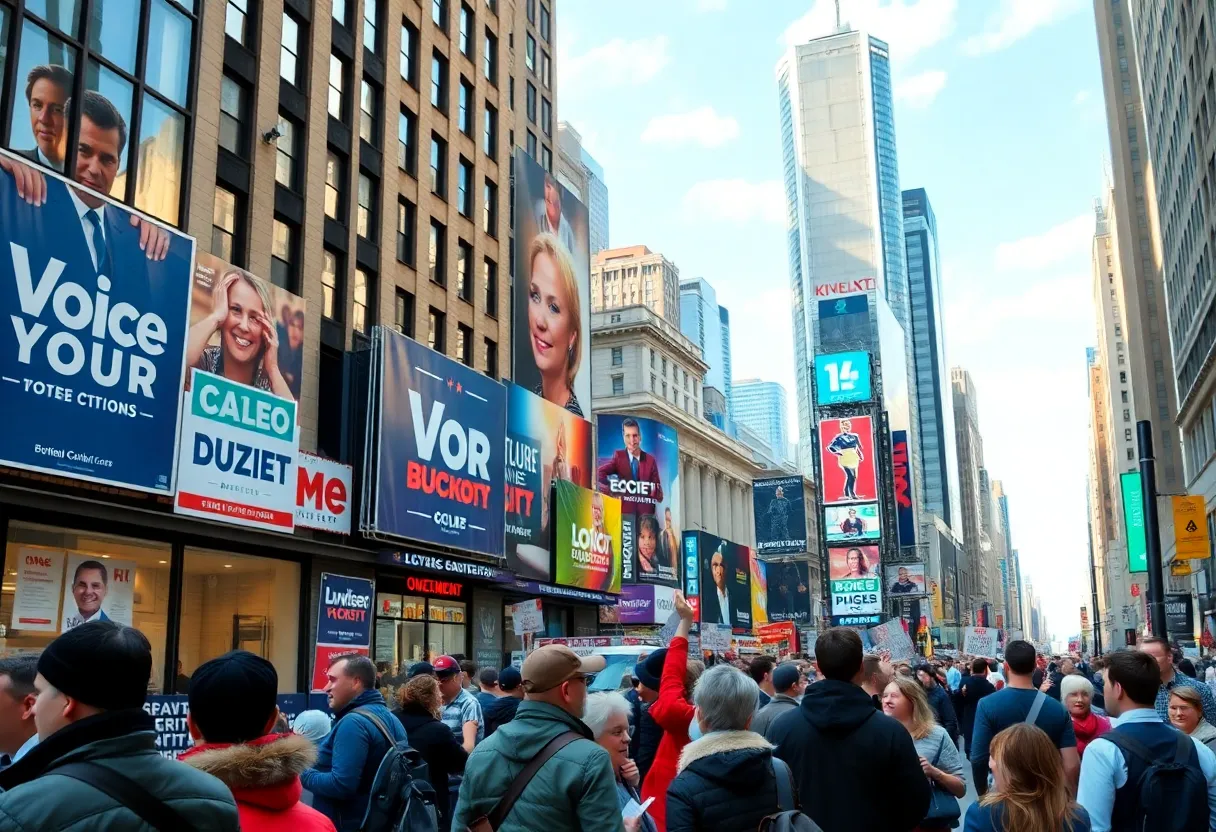News Summary
New York City’s mayoral candidate Zohran Mamdani proposes establishing a network of city-owned grocery stores to address rising food costs and accessibility issues. His plan, which includes launching one store in each borough, aims to redirect funds from private grocery store tax breaks. However, the initiative faces criticism from business leaders and economists, raising concerns about the feasibility and economic impact of government-run stores. This controversy continues to be a significant topic in the ongoing mayoral race.
New York City is currently witnessing a heated debate surrounding the proposal of mayoral candidate Zohran Mamdani, who aims to establish a network of city-owned grocery stores to combat rising food costs and improve accessibility. Mamdani, who recently won the Democratic primary, claims that his initiative will lead to lower grocery prices by eliminating the burden of rent and property taxes traditionally faced by private retailers.
The proposal outlines an ambitious plan to launch one grocery store in each of the five boroughs, with an estimated cost of $60 million. To fund this initiative, Mamdani suggests reallocating $140 million currently designated for tax breaks for private grocery stores. Proponents of this plan assert that city-owned stores could help close the gap in food accessibility, particularly in areas often referred to as food deserts, where residents have limited access to affordable fresh groceries.
Despite his intentions, Mamdani has faced significant backlash from various stakeholders, including economists, business leaders, and residents concerned about the viability of government-run food stores. Critics argue that such ventures are inherently flawed due to their lack of market accountability, which could lead to inefficiencies and inflated costs. Renowned experts warn that government-operated grocery stores may lead to empty shelves and unsustainable business practices.
There are notable concerns that Mamdani’s plans could adversely affect the local economy, particularly in light of criticism from influential voices in the grocery and financial sectors. Some business owners fear that the implementation of what they consider to be socialist policies could force existing stores to shut down or relocate, which could ultimately reduce competition and choice for consumers. High-profile billionaires have even taken a stand against the proposal, with assertions that socialism has no place in New York, a city identified as a major economic hub.
The underlying issue of food accessibility in New York City is characterized by the prevalence of fast-food chains in low-income neighborhoods, overshadowing the presence of affordable grocery stores. Mamdani’s push arises from constituents’ demands for better grocery options in these underserved communities, where healthy food choices are often minimal.
Historical references to city-owned grocery stores exist, with past models attempted in locations such as St. Paul, Kansas, and Atlanta, aimed at addressing food insecurity. However, results from previous initiatives highlight mixed outcomes, particularly in Baldwin, Florida, where low foot traffic led to operational struggles. Specialists in urban food systems advocate for a balanced approach, suggesting that public and private grocery solutions could coexist and that the city should consider expanding existing food assistance programs to better meet the needs of residents facing financial challenges.
Economic analysts have expressed skepticism regarding the practical execution of Mamdani’s grocery store plan, questioning the demand for city-run stores and whether they truly address the fundamental drivers of escalating food prices. Critics emphasize that a shift in strategy towards enhancing food assistance might provide more immediate relief to those in need, rather than establishing new government-run establishments.
As the debate unfolds, Mamdani’s campaign has not publicly addressed the criticism directed at his grocery store proposal. This controversy marks a significant moment in New York City’s race for mayor, where the outcome may have a lasting impact on both the local economy and food accessibility strategies within the metropolis.
Deeper Dive: News & Info About This Topic
HERE Resources
Bodega Owners Oppose NYC Mayor Candidate’s Grocery Store Proposal
Pennsylvania Chamber Targets NYC Businesses Amid Political Shift
New York Approves Historic $37.6 Billion Education Funding
Educational Reform Leads By Socialism in NYC
Mamdani Proposes City-Owned Grocery Stores to Combat Food Insecurity
Bodegas Oppose City-Owned Grocery Store Initiative
Zohran Mamdani Proposes Controversial Property Tax Overhaul in NYC
Zohran Mamdani Emerges Victorious in NYC Mayoral Primary
Boca Raton Mayor Scott Singer Attracts New York Businesses
New York City Proposes Municipally Owned Grocery Stores
Additional Resources
- Fox Business: Mamdani’s public grocery stores may have devastating effects on city’s food supply
- Wikipedia: Food Desert
- NBC New York: Critics of Mamdani’s plan for NYC-run grocery stores
- Google Search: Zohran Mamdani
- The Economist: Should cities run their own supermarkets?
- Encyclopedia Britannica: Food Security
- Bloomberg: Mamdani’s proposal for city-owned stores won’t work for NYC or elsewhere
- Google News: New York City grocery store plan
- New York Post: NYC bodega owners worry Mamdani will put them out of business








